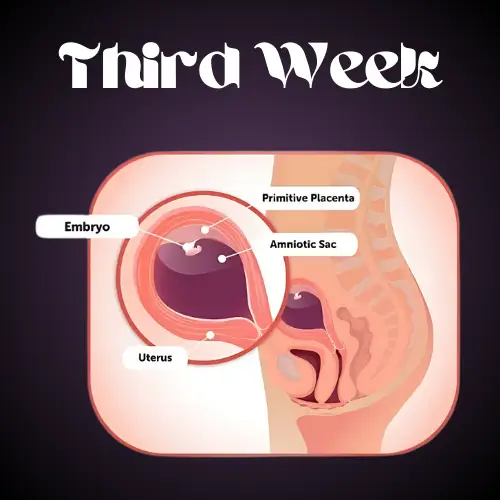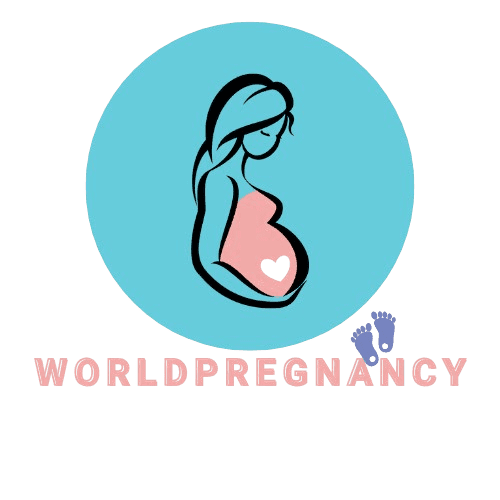The Third Week of Pregnancy: Key Milestones and Changes
Learn about the third week of pregnancy, including fertilization, implantation, and the early stages of embryo development. Find out what symptoms to expect.

Introduction to the Third Week of Pregnancy
The third week of pregnancy is a pivotal moment in your journey to motherhood. While you may not yet feel any physical changes, your body is undergoing remarkable transformations. This week marks the beginning of fertilization, conception, and the early stages of embryo development. Whether you’re actively trying to conceive or just curious about the process, understanding what happens during this week can help you feel more connected to your body and your growing baby.
Key Milestones in the Third Week of Pregnancy

Fertilization: The Beginning of Life
The third week of pregnancy is when fertilization typically occurs. If sperm meets an egg in the fallopian tube, they combine to form a single cell called a zygote. This zygote contains all the genetic material needed to create a unique individual—half from the mother and half from the father.
Zygote Formation and Rapid Cell Division
After fertilization, the zygote begins to divide rapidly. Within 30 hours, it splits into two cells, then four, and so on. By the end of the third week, the zygote becomes a blastocyst, a cluster of cells that will eventually develop into the embryo and placenta.
Implantation: Nestling into the Uterine Lining
The blastocyst travels down the fallopian tube and reaches the uterus, where it begins to implant into the uterine lining. This process, called implantation, is crucial for pregnancy to continue. Some women may experience light spotting, known as implantation bleeding, during this time.
Early Pregnancy Symptoms at 3 Weeks
At three weeks pregnant, most women won’t notice significant symptoms. However, some early signs may include:
-
Spotting or Implantation Bleeding: Light pink or brown discharge.
-
Mild Cramping: Similar to menstrual cramps.
-
Breast Tenderness: Swollen or sore breasts.
-
Fatigue: Feeling unusually tired.
-
Basal Body Temperature: A slight increase in body temperature.
Remember, every woman is different, and some may not experience any symptoms at all.
Baby Development: What’s Happening Inside?
During the third week, your baby is just a tiny cluster of cells, but incredible changes are happening:
The zygote divides into multiple cells.
The blastocyst forms and begins to implant in the uterine lining.
The foundation for the placenta and umbilical cord is laid.
While your baby is still microscopic, this week sets the stage for all future growth and development.
Essential Tips for a Healthy Third Week of Pregnancy
To support a healthy pregnancy, follow these tips:
Take Prenatal Vitamins: Start taking folic acid to prevent neural tube defects.
Maintain a Balanced Diet: Include fruits, vegetables, whole grains, and lean proteins.
Stay Hydrated: Drink plenty of water.
Avoid Harmful Substances: Say no to alcohol, smoking, and recreational drugs.
Exercise Moderately: Engage in light activities like walking or yoga.
Track Your Cycle: If you’re planning to conceive, monitor your ovulation and menstrual cycle.

Frequently Asked Questions (FAQs)
Q1: Can I take a pregnancy test at 3 weeks?
A: At 3 weeks, it might be a bit early for a pregnancy test to give you accurate results. Pregnancy tests work by detecting the hormone hCG, which starts to rise after the fertilized egg implants in the uterus. Implantation typically happens around 6–10 days after ovulation, so by the 3rd week, hCG levels might still be too low for detection.
For the most accurate results, it’s usually recommended to take a test after you’ve missed your period, which is around the 4th or 5th week of pregnancy. If you’re eager to test early, some sensitive tests claim to detect pregnancy a few days before a missed period, but false negatives are more likely at this stage.
If you’re feeling uncertain, you could consult a healthcare provider for advice. How are you feeling about this?
Q2: Is spotting normal at 3 weeks pregnant?
A: Yes, light spotting can occur during implantation. However, if bleeding is heavy or accompanied by pain, consult a doctor.
Q3: What should I avoid during the third week of pregnancy?
A: Avoid alcohol, smoking, caffeine, and raw or undercooked foods. Also, limit exposure to harmful chemicals.
Q4: Can I exercise during the third week of pregnancy?
A: Yes, light exercises like walking or prenatal yoga are safe and beneficial.
Q5: How can I confirm pregnancy at 3 weeks?
A: A blood test at your doctor’s office can detect pregnancy hormones earlier than a home test.
Conclusion
The third week of pregnancy is a time of incredible beginnings. From fertilization to implantation, your body is laying the foundation for your baby’s growth. While you may not feel pregnant yet, taking care of yourself and staying informed can help you navigate this exciting journey with confidence. Remember, every pregnancy is unique, so listen to your body and consult your healthcare provider for personalized advice.
